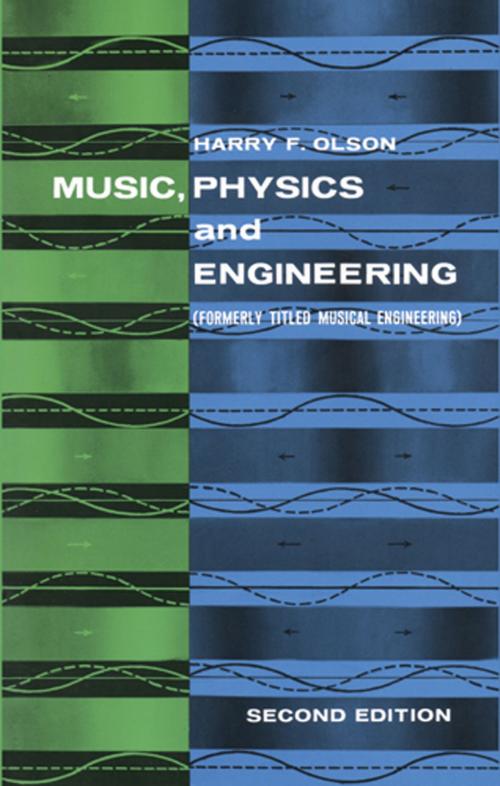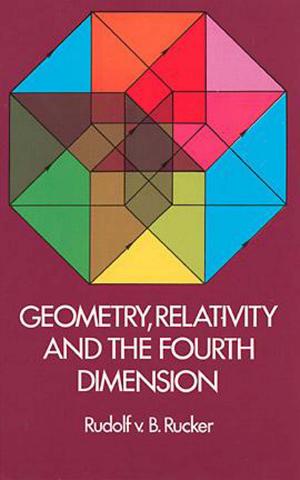Music, Physics and Engineering
Nonfiction, Science & Nature, Science, Physics, Acoustics & Sound, Entertainment, Music, Reference, General Reference| Author: | Harry F. Olson | ISBN: | 9780486317021 |
| Publisher: | Dover Publications | Publication: | April 22, 2013 |
| Imprint: | Dover Publications | Language: | English |
| Author: | Harry F. Olson |
| ISBN: | 9780486317021 |
| Publisher: | Dover Publications |
| Publication: | April 22, 2013 |
| Imprint: | Dover Publications |
| Language: | English |
Now thoroughly revised and enlarged, this book offers the most comprehensive coverage available of all aspects of the production, reception, and reproduction of sound. Written clearly and concisely, all its chapters can be understood without specialized training in music, physics, engineering, or mathematics.
Dr. Olson discusses the nature of sound waves; explains the division of sound into scale patterns and the traditional method of notating them; describes the individual characteristics of all musical instruments currently in use (including the human voice); shows how the ears hear; discusses concert hall and recording studio acoustics, amplification systems, etc; describes the elements of sound reproduction systems from the telephone to the stereo record player; and concludes with a new chapter on the production, development, and potentialities of electronic music.
Under these broad headings, readers will find a close analysis of the way in which a violin produces sound; descriptions of carbon, crystal, dynamic, velocity, and unidirectional microphones; a comparison of the relative absorbency of 22 acoustic materials, building materials, and objects; a description of how music can be produced by a digital computer; and much, much more. Conductors will find suggestions on positioning their orchestras; performers will understand the dynamics of their instruments; recording engineers and acousticians will discover a remarkably comprehensive reference work; and music teachers, students, physicists, and enthusiasts in general will find easy access to a vast wealth of information.
Now thoroughly revised and enlarged, this book offers the most comprehensive coverage available of all aspects of the production, reception, and reproduction of sound. Written clearly and concisely, all its chapters can be understood without specialized training in music, physics, engineering, or mathematics.
Dr. Olson discusses the nature of sound waves; explains the division of sound into scale patterns and the traditional method of notating them; describes the individual characteristics of all musical instruments currently in use (including the human voice); shows how the ears hear; discusses concert hall and recording studio acoustics, amplification systems, etc; describes the elements of sound reproduction systems from the telephone to the stereo record player; and concludes with a new chapter on the production, development, and potentialities of electronic music.
Under these broad headings, readers will find a close analysis of the way in which a violin produces sound; descriptions of carbon, crystal, dynamic, velocity, and unidirectional microphones; a comparison of the relative absorbency of 22 acoustic materials, building materials, and objects; a description of how music can be produced by a digital computer; and much, much more. Conductors will find suggestions on positioning their orchestras; performers will understand the dynamics of their instruments; recording engineers and acousticians will discover a remarkably comprehensive reference work; and music teachers, students, physicists, and enthusiasts in general will find easy access to a vast wealth of information.















